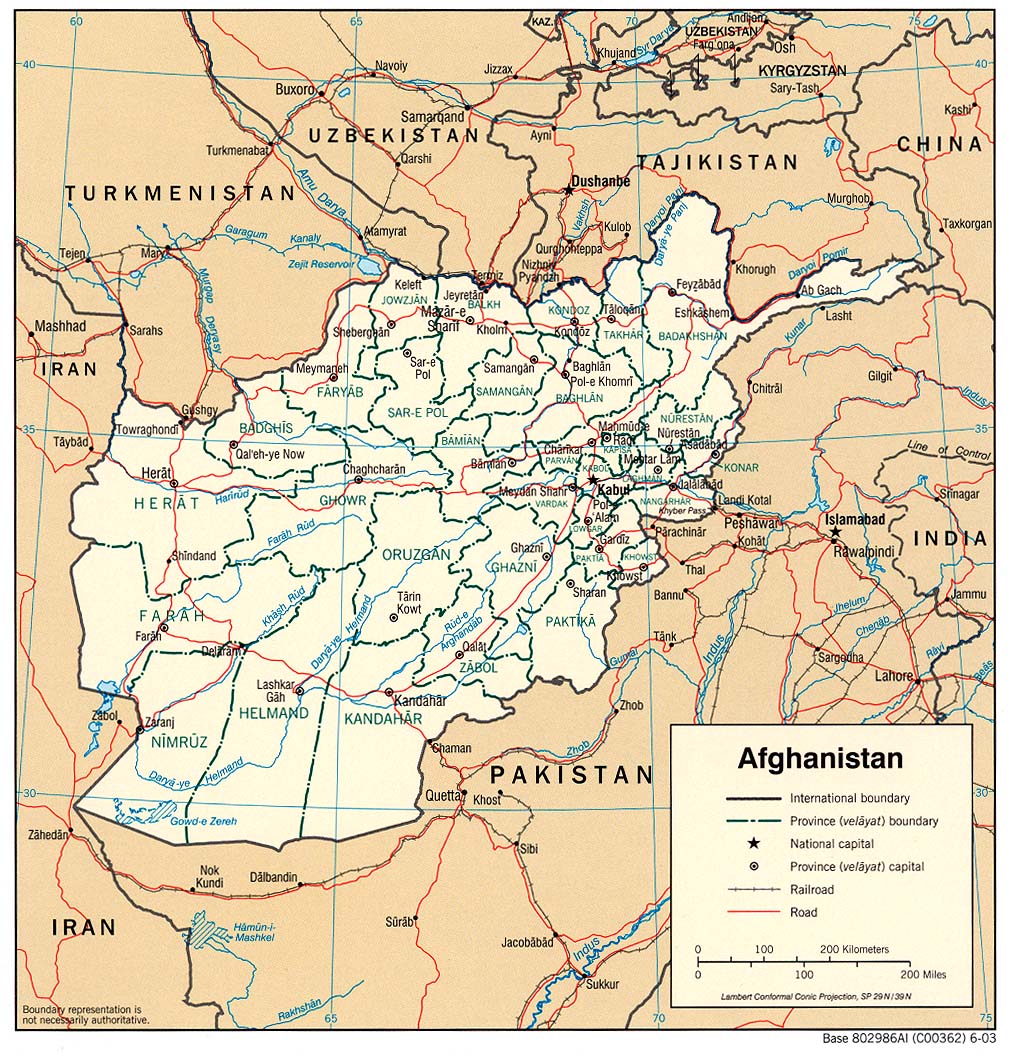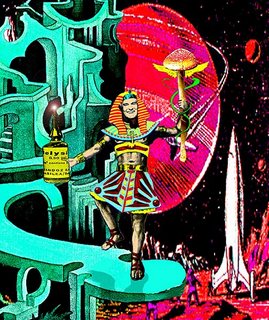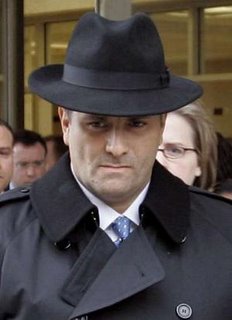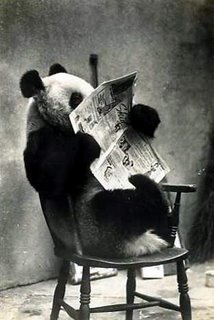
The American General James Jones calling for more troops for Afghanistan, is the same General that criticized Rumsfeld for the failed war in Iraq.
Like the British General who also wants to withdraw from Iraq in order to deploy more UK Armed forces into Afghanistan, General James Jones who represents American Forces in NATO see's Iraq as a disaster.
It is a disaster because it was a misconcieved doomed mission to begin with.
It has resulted in the Americans fighting a war on two fronts, a historic military no-no if there ever was one.
The lesson here is that Iraq is a failure, and Afghanistan will soon be. One would think that at least the British would understand that given their historic failures in Afghanistan, not once , not twice, but three times. Do they think four times is lucky?
The US and UK Generals in charge of Afghanistan operations think that with troop reinforcements from Iraq they will have enough ground forces to stablizes the Southeastern and Northern borders. Unfortunately even with increased numbers they will not have enough men or fire power.
2 Signal Regiment ‘Afghan move’SOLDIERS in York have been warned to prepare for a possible posting to war-torn Afghanistan, sources have revealed.
The York signallers, whose role in such operations is to provide communications support for other troops, are no strangers to dangerous postings abroad.
About 100 from the 246 Signal Squadron returned to York in January last year after a six-month tour of duty in Iraq.
In 2003, about 300 members of the regiment took part in the Iraq war, providing communications support, first during the war for British armoured brigades, and then in the post-conflict struggle to help restore civilian telephone services.
The Russians left Afghanistan after having underestimated the military force needed, like Rumsfeld. When they left they still had between 40,000 and 60,000 ground forces, and they had several battalions of tanks. More tanks than NATO has, since it has relied on US air support. Which is itself another failed strategy.
Like the debacle of Kosovo, even if NATO does pacify the border regions it is but a temporary victory. The problem is then of nation building, which considering Afghanistans history, is counter intuitive. It will not become a democratic capitalist state based on some European model. It never has been that kind of nation. It is a border state, with no natural resources, it is a transit point, a crossover, to other regions. Its federalism is tribal and has been for hundreds of years.
THE objectives of the British mission to Afghanistan could take as long as 20 years to achieve, according to a confidential Ministry of Defence briefing seen by The Sunday Times.
 It is these tribal factions that divide Afghanistan up into territories, regions, provinces. There is no national Afghan identity. Because the country has not had a bourgoise, it remains a feudal throwback. There has been no national libertation struggle, no national identity formed as in the case of the European nations between the 18th and 20th Centuries.
It is these tribal factions that divide Afghanistan up into territories, regions, provinces. There is no national Afghan identity. Because the country has not had a bourgoise, it remains a feudal throwback. There has been no national libertation struggle, no national identity formed as in the case of the European nations between the 18th and 20th Centuries.The nationalist movements in Europe were a result of the French Revolution and the Bonapartist Counter-Revolution that followed. Much like the American Empire, Napoleon made himself the spirit, the zietgiest of the Revolution, while undermining at home the democratic nature of the Revolution. He took the spirit and used it to justify his Imperialist ambitions. Forever embodying the real spirit of the bourgoisie.
As a result the provincial European states were forced to unify ironically not only to oust the French but because of the Napoleonic civil code that allowed them greater freedoms. The origin of European Nation States and nationalism is in reaction to the Napoleanic wars.
Finding the Nation in Bremen: The Lower Class and Women after Napoleonic Occupation by Buse, Dieter K
While in the Levant , Middle East and Asia Minor the rise of the Ottoman Empire shows that a Muslim based Imperialism that contains within it the seeds of secular nationalism, the result was the creation of a single nation State Turkey, results not in nation states but in a replication of the Roman Empire. When the Empire collapses it does so into provincialism and religious sectarianism. Such is the case of Afghanistan.
At the beginning of the 19th century, as Napoleon surged back and forth across Europe, the subject Christians of the Balkans became more and more restless, and Russia began to try again and again to retrieve Constantinople for Christendom and break through the Straits. The Ottomans, although achieving some successes, were not going to be able to resist this. The Empire's status as the "Sick Man of Europe" was now becoming quite established. It was Realpolitik that came to the rescue of the Sult.ân: Britain did not want Russia to be too successful and so entered into a long policy of supporting the Turks against the forces, from Russia or Egypt or wherever, that might result in the collapse of Ottoman rule. Nevertheless, Britain could not allow too much oppression of subject Christians, and as the century wore on, small Christian states, from Serbia to Greece to Bulgaria, were allowed autonomy and then independence by the agreement of the Great Powers. This did not get any of them all they wanted, and it certainly limited Russian gains, but it kept the geo-political dam from bursting and kept the Sult.ân from falling off his Throne.
Finally, it was the internal forces of Turkey that began to shake things up after a pattern that would become all too familiar in "underdeveloped" countries later: A military coup, the "Young Turks," against the detested Sult.ân 'Abdül-Hamîd II in 1908.This did not help much when the Balkan states fell on Turkey in 1912. The choice of Germany as a European ally would then be fatal for the Ottoman future. Another ill effect was the transformation of the Mediaeval Cause of Islâm into a more modern Turkish nationalism. This did not work well, and never would, with the Arabs, Armenians, and Kurds living within Turkish borders. The disaffection of the first exploded in a pro-Allied revolt in World War I. Suspicion about the second led to shameful deportation and massacre about the same time. And conflict with the third continues, with campaigns of terrorism and suppression, even today. Woodrow Wilson impotently called for an independent Armenia state, in an area where there were by then few Armenians left, and soon almost none after Turkey pushed the Armenian Republic back east of the Araks (Aras) River in 1920. No Power has called for an independent Kurdish state. Meanwhile, the British and French were perfectly happy to detach the Arab lands from the Empire, not for independence, to be sure, but to further British and French imperial projects. This turned out to be more trouble than it was worth, especially when the Zionist colonization of Palestine, allowed by the British, led to the creation of Israel and to a conflict, including five major wars (1948, 1956, 1967, 1973, 1982), that continues until today. The settlement of World War I has thus been aptly called "the peace to end all peace."The Ottoman Sultans of Turkey & Successors in Romania
The Ottoman empire lasted until the twentieth century. While historians like to talk about empires in terms of growth and decline, the Ottomans were a force to be reckoned with, militarily and culturally, right up until the break-up of the empire in the first decades of this century. The real end to the Ottoman culture came with the secularization of Turkey after World War II along European models of government. The transition to a secular state was not an easy one and its repercussions are still being felt in Turkish society today; nevertheless, secularization represents the real break with the Ottoman tradition and heritage. The Ottomans
See:
Afghanistan
Find blog posts, photos, events and more off-site about:
Canada, Nukes, Pakistan, Taliban, Balochistan, Harper, Bush, Afghanistan, nuclear, NDP, liberals, Afghanistan, PB, BT, Canada, Progressivebloggers, bloggingtories, blogs, blogging, bringthetroopshome, Layton, TroopsOut, Afghanistan, War, Harper, Conservatives, Liberals, Canada, politics, military, NATO, peacekeeping, Karzai, NDP, liberals, Afghanistan, PB, BT, Canada, Progressivebloggers, bloggingtories, blogs, blogging, Graham, Liberals, Canada, Soldiers, Death, Injury, Afghanistan, Government, Politics, values, General, Sir, Richard, Dannatt, Tony, Blair, UK, Army, British, Iraq, Bush, Prince-Harry, Afghanistan
Tags
Canada
USA
War
Friendly Fire
Canadian Troops
Afghanistan
Kandahar










